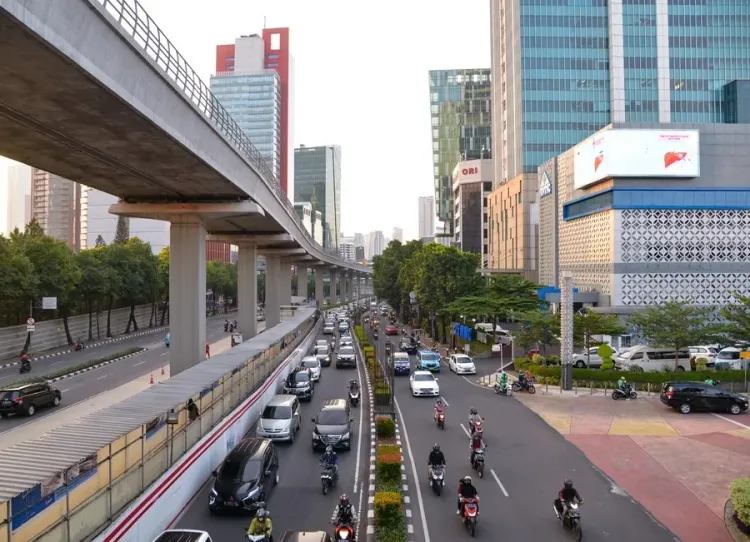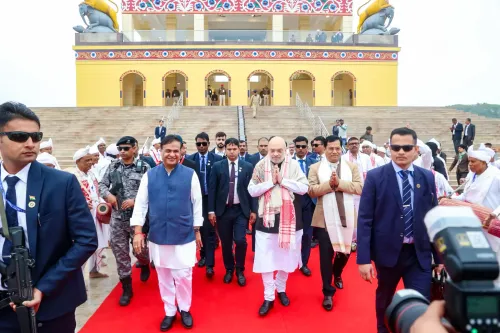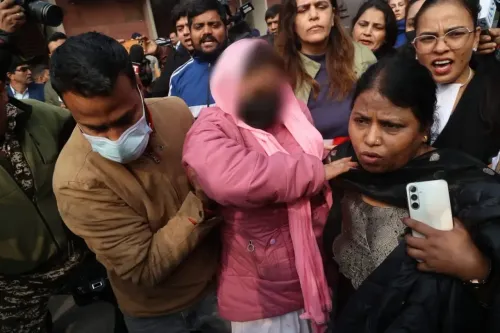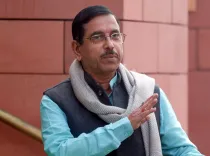Is Indonesia Facing a Fuel Shortage Crisis at Private Stations?

Synopsis
Key Takeaways
- Fuel shortages at private stations have led to significant complaints.
- Many workers have lost jobs as companies reduce operations.
- The government is urging collaboration between private firms and Pertamina.
- Daily life for Indonesians has been disrupted due to the ongoing crisis.
- This situation highlights the need for better fuel management in the country.
Jakarta, Sep 18 (NationPress) A fuel shortage at private filling stations in Indonesia has persisted since August, leading to numerous complaints and job losses as companies reduce their operations.
Reports from local media indicate that fuel availability at nearly all private stations, including Shell and British Petroleum (BP), remains critically low. These companies, primarily serving major urban areas, have struggled to meet consumer demand, compelling motorists to depend on the state-owned Pertamina.
For many in Indonesia, Shell and BP are considered viable alternatives to Pertamina. However, the ongoing scarcity has significantly disrupted daily activities.
“I have visited the Shell station every morning since last week, hoping for fuel. Unfortunately, they remain out of stock,” shared Muhammad Dika, a resident of Bekasi, West Java. “Drivers find themselves switching from station to station,” as reported by Xinhua News Agency.
In Depok, 29-year-old Ibrahim Hanif expressed that he hasn’t used his car for several days because the Shell and BP stations nearby are depleted.
On Tuesday, Shell Indonesia acknowledged that they had reduced operating hours, cut back workdays, and placed some employees on temporary leave.
“These adjustments are essential due to challenges in securing fuel supplies,” stated Ingrid Siburian, the company’s President Director and Managing Director of Mobility, as quoted by local media.
As the largest economy in Southeast Asia, Indonesia produces crude oil domestically but still relies heavily on refined imports due to limited refinery capacity.
The Ministry of Energy and Mineral Resources has linked the shortage to a spike in demand for non-subsidized fuel at private stations, which quickly exhausted their import quotas.
“This is the dynamic we see; there is a shift happening. It’s really a consumption dynamic,” explained Laode Sulaeman, Director General of Oil and Gas at the ministry.
This is the second instance of shortages faced by private companies this year, following similar disruptions that occurred between late January and early February.
Bahlil Lahadalia, the Minister for Energy and Mineral Resources, urged private oil companies to collaborate with Pertamina to ensure fuel availability and mitigate further distress.
“This is critical because it affects the livelihoods of many individuals. Industries impacting numerous lives must remain under state control to ensure stability,” Lahadalia remarked on Monday in Jakarta.
He also emphasized that the government would keep a close eye on the situation, including potential workforce impacts, and work with Pertamina to swiftly address shortages at private stations.










